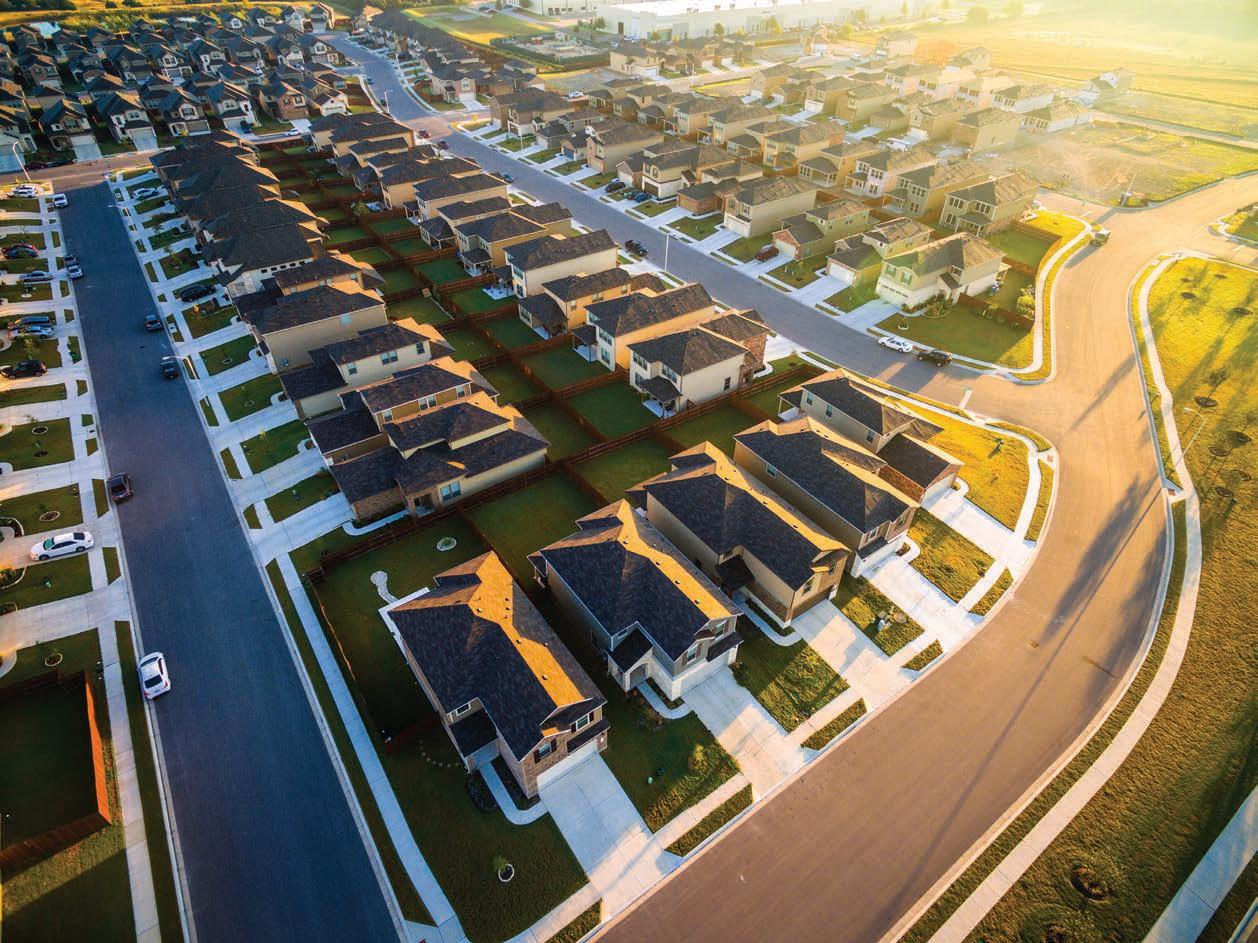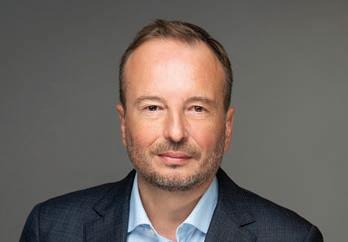
9 minute read
Invested in the Region
Since their launch, Alex Gemici Chairman & CEO of Greenstone Equity Partners has witnessed growing regional demand for quality and increased investor sophistication, but notes that in the mini renaissance we are experiencing, attention must be given to regulatory compliance
Since Greenstone’s Dubai launch in 2011, how has the asset management market evolved in the UAE and the GCC?
Advertisement
We founded Greenstone to develop the GCC’s first institutional-grade platform between leading, best-of-breed global fund managers and GCC investors, including Sovereign Wealth Funds (“SWFs”), institutional investors, and family offices across the UAE, Saudi Arabia, Kuwait, Oman, and Qatar.
Greenstone’s launch coincided with the end of the Global Financial Crisis (“GFC”). Prior to the GFC, not unlike their counterparts globally, many GCC investment organisations in the region were not as discriminating in their fund manager selection and due diligence processes.
However, over the past decade, there has been a clear movement-to-quality by GCC investors, initially to fund managers with a known brand and then, as quickly as practicable, to the establishment and implementation of thorough investment strategies and processes, including the formation, formalisation and strengthening of internal investment committees enforcing such processes. These changes have enabled GCC investors to be more confident in allocating to a large swath of best-of-breed fund managers (even to those without a globally recognised brand) in various asset classes around the world.
During this period, the GCC investment community grew substantially in assets. For example, GCC SWFs now have over $3.2 trillion of assets, accounting for one-third of global SWF assets from this sector and four of the world’s top ten SWFs now originate from the GCC.
This rapid increase in assets and improved levels of investor sophistication has made the GCC even more popular with U.S., European, and Asian fund managers looking to diversify their investor base.
As such, we have seen GCC investors evolve to become more dynamic and globally integrated, building assets with an optimistic future in focus. This
includes a real push towards technology investments as well as investments in innovation in alternative asset classes such as private equity, real estate, and private debt.
How much has the market changed over the past three turbulent years?
Over the past three years, global markets have dealt with unprecedentedly timecompressed cycles. We have endured six major cycles over the last 30 months which historically would occur over a tenyear period: 100-day stock market crash and recovery (Feb-Jun 2020); 651-day bull market (Mar 2020-Jan 2022) 164-day bear market (Jan 2022-Jun 2022) tech boom (Apr 2020-Dec 2021) tech bust (Jan-Jul 2021) first real economic inflation in 40 years from 0.1% in May 2020 to 8.5% in
July 2022,
At the same time, from an investment capital standpoint, we believe the GCC is experiencing a mini renaissance which is making this region even more important to asset managers on a global scale. For example:
The GCC is benefiting from one of the largest influxes of HNWIs in its history.
Relatively high oil prices have increased cash flow to GCC countries, erasing budget deficits from previous years, and providing capital surpluses for governments and their SWFs.
Local governments continue to innovate and invest impactfully in global ecosystems (e.g., Dubai Expo 2020, the Qatar World Cup, LIV Golf,
NEOM, etc.) creating the feedback loop of capital inflow into the region.
This local renaissance, along with forward-thinking flexible policies to support entrepreneurs and corporate expansion, is creating numerous business opportunities and jobs, and have attracted a growing number of professionals and their families to the GCC.
Most importantly, we see a maturing virtuous cycle in the GCC where SWFs,

Alex Gemici, Chairman & CEO at Greenstone Equity Partners
institutional investors, and family offices re-allocate capital globally to play a meaningful role across strategies, sectors and geographies which, in turn, bring capital proceeds, new technologies, talent, and business innovations to the region to be reinvested locally and globally.
Is regulatory and compliant capital raising in the region growing in line with other global markets?
Yes, and we strongly believe that foreign fund managers who raise capital from investors in the GCC should take heed of the fast-paced changes to the regulatory environment in the GCC.
Over the last 10 years, an everincreasing number of foreign private asset managers have been marketing their products to investors in the GCC, dramatically increasing the need for regulatory oversight similar in maturity and complexity to those in the U.S. and Europe. Thus, local regulatory authorities have instituted many new and restrictive guidelines and have clarified the applicability of existing regulations.
For example, in Saudi Arabia, the Rules on the Offering of Securities and Continuing Obligations (“ROSCO”) and Investment Fund Regulations (“IFR”) require all foreign securities sales (including alternative fund offerings) to be registered with Saudi Arabia Capital Market Authority and offered only through a locally licensed entity. In May 2021, a change to the IFR caused a substantial change to the process for the registration of foreign funds and the type of locally licensed entities that can register foreign funds. For fund managers seeking capital from GCC investors, it is imperative to comply with local regulations to maintain an unimpaired investment practice and ensure healthy capital markets.
Generally, in Greenstone’s experience, foreign fund managers (and to some extent their compliance counsel) do not understand the GCC regulatory environment. Based on thousands of direct communications Greenstone has with foreign fund managers every year, we estimate that more than 90% of foreign funds continue to be marketed to GCC investors in a non-compliant manner.
To minimise the complexities and costs associated with a fund manager developing and maintaining its own locally licensed entities in the various GCC countries, Greenstone’s regulatory compliance platform enables foreign fund managers to work with locally licensed entities to compliantly offer funds to GCC investors within the boundaries of the regulations.
How do you see the region changing, and how is Greenstone growing with it?
Greenstone is focused on four areas of growth that are deeply aligned with the important trends we are seeing in the GCC region:
Institutional-grade Fund Placement
The investment organisations of GCC SWFs, institutional investors and family offices are continually evolving and investing across an ever-widening spectrum of asset classes, geographies and sectors. In lockstep with our GCC investors, Greenstone grows and adapts our GCC investor coverage to build on our longstanding investor relationships and fit the needs of each investment organisation we cover.
Through careful product selection, fund manager due diligence and iterative processes which match the market intelligence received from our thousands of one-to-one conversations each year with GCC investment organisations, Greenstone has developed a one-of-itskind fund placement model aligned to meet investors’ changing demand. As a result, we have been recognised annually since 2018 as one of the top performing private capital placement firms in the world, even WE STRONGLY BELIEVE THAT FOREIGN FUND MANAGERS WHO RAISE CAPITAL FROM INVESTORS IN THE GCC SHOULD TAKE HEED OF THE FAST-PACED CHANGES TO THE REGULATORY ENVIRONMENT IN THE GCC
though Greenstone only raises capital from five countries in the GCC. We will continue to evolve and innovate to enable our investors to allocate to leading funds and fund managers around the world.
GCC Regulatory Compliance Program
We believe the GCC regulatory environment will continue to mature to ultimately model the uncompromising regulatory atmospheres of the U.S. and Europe. To meet the growing demand of foreign fund managers who wish to raise capital for their funds from GCC investors but lack the local licensing to do so, Greenstone’s GCC Regulatory Compliance Program offers a simple and cost-effective platform of locally licensed entities through which fund managers may outsource their GCC regulatory compliance.
Expanding HNWI Access to Alternative Assets
Globally there is a natural expansion of alternative investment funds to a larger investor universe by reducing the minimum investment size into funds. We at Greenstone feel that an increase in accessibility to these investment funds which target high returns is socially responsible because it opens investment opportunities to high-networth individuals which have traditionally only been available to institutional investors. We have been working for over a year on building a platform of top private equity and other alternative funds (which are currently only available to institutional investors), structured in a manner where they are accessible
by smaller GCC investors. We expect to launch our platform in early 2023.
Globally Sourced Talent
The UAE and KSA are pouring a tremendous amount of innovation and thoughtfulness into programs to build up local economies through the import of global talent. As a homegrown GCC firm, Greenstone benefits from access to these programs and is focused on continuing to attract the best and brightest talent globally. Currently, Greenstone boasts a team of over 20 nationalities to support our growing business.
You have recently released your inaugural annual survey of GCCbased Private Capital Investors. What prompted Greenstone to embark on this exercise?
After building relationships and gaining the trust of a large number of institutional investors and family offices in the GCC, we believe we are uniquely positioned to be able to generate meaningful and statistically reliable data and sentiment from the region. We are very pleased with the outcome of our first survey which received 110 significant responses from investment organisations spanning the GCC’s SWFs, institutional investors and family offices. While there are substantial research data and statistics available on the preferences and market sentiment of U.S. or European investors, there has been minimal reliable comparable research available on GCC investors. Due to the success of this inaugural survey, we have decided to conduct our survey and publish results annually going forward.
GREENSTONE GCC INVESTOR INSIGHTS 2022 HIGHLIGHTS
$ 3.2 trillion

The GCC is home to one-third of global SWF assets
68 %
of respondents have 34% to 100% of their current portfolio allocated to alternatives
76%

Respondents favor investing in North America, closely followed by Europe and the UK of respondents prefer to allocate to alternative funds (vs. direct-only alternatives)


Over the next 12 months, respondents plan to increase allocations across all alternative strategies except Natural Resources
Private Equity
Real Estate
Infrastructure
Venture Capital
Private Debt
-14%
-5%
-5%
-6%
-6%
Hedge Funds
Natural Resources
-7%
-10% 31%
42%
56%
58%
65%
80%
84% +13%
+6% +39%
+36%
+29% +55%
+53%
To discuss this report, please contact: marketing@gsequity.com












